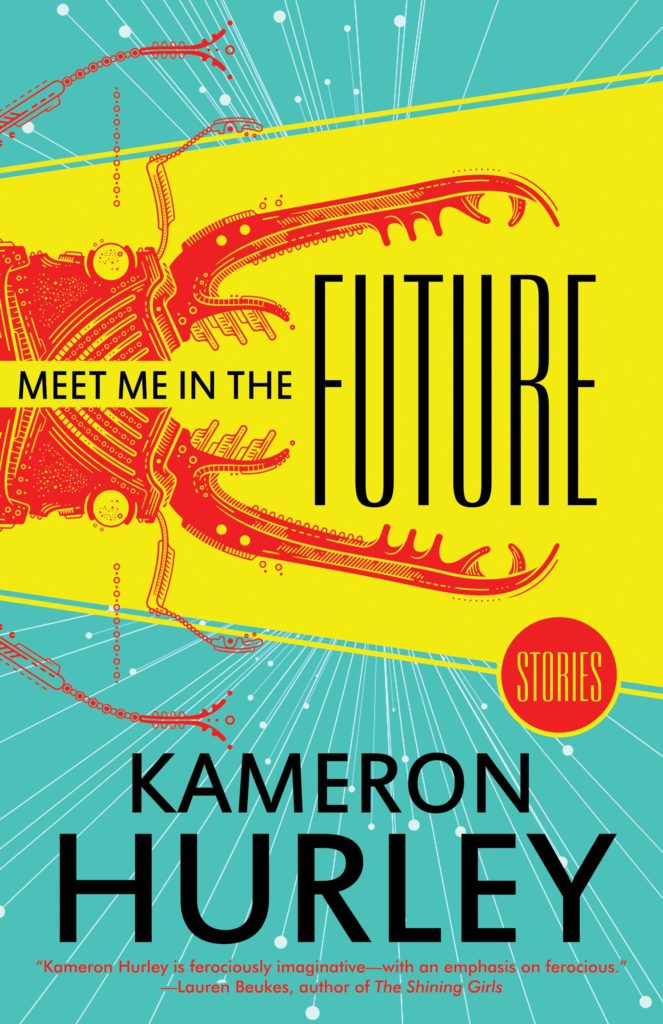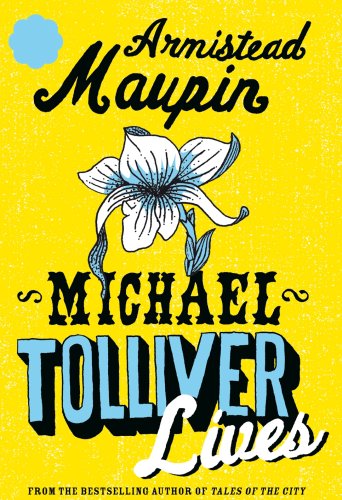
Kameron Hurley's heart belongs to novels. Meet Me in the Future's introduction tells the reader as much instantly. And yet this is her second collection (third, depending on whether you believe the book itself or Hurley's Wikipedia). To that end, some parts of Meet Me in the Future are considerably stronger than others. These stories represent Hurley's particular fascinations: womens' place in society, the impermanence of bodies; plague and pathology. Some she communicates well in sparkling stories, but others collapse under their own weight.
The collection opens with one of its best stories, "Elephants and Corpsesâ€. "Elephants and Corpses†is a vignette in the life of body mercenary Nev, who spends his days fishing up corpses to inhabit, even though his battlefield days are behind him. Nev shows up in the later story "The Fisherman and the Pigâ€, at a time when body mercenaries are even less relevant. Both stories speak to a rich character who exists in a curious world with unplumbed deaths. One could happily read a full novel either about Nev or the society that birthed him, and the satisfaction these stories provides is emblematic of the strongest elements of the collection. Hurley acknowledges the tricks that she performs to make Nev a sympathetic character in the body of the text, but it's difficult to resent her for it.
The grounding of Nev stands out in particular against the multiple free-standing stories that have deliberately opaque settings. "The Plague Givers†is something of a novella in which there are four genders. Hurley presents her worlds as if they're established, and maybe the reader doesn't have time to get an entire history of the Plague society, but there's no real entrée to any of these gender concepts. It wouldn't matter so much if her pronoun system wasn't utterly confounding. One of the genders is "panâ€, and instead of he/his, she/her, they/them or even zie/zir pronouns, the pan have "per/perâ€. This stylistic choice renders multiple passages difficult to parse without repeated backtracking. Research suggests that this particular system was inspired by Marge Piercy's Woman on the Edge of Time, but one hopes that Piercy incorporated the per pronoun with more finesse than Hurley has here.
It's unfortunate, as "The Plague Givers†is otherwise a workable story, although by the time that it appears it is starting to feel familiar within the context of the collection. Hurley oscillates between presenting disease as neutral or a force of evil, but the scope of the world is too large for the ground that "The Plague Givers†covers. We have context for the Bet, the protagonist, but it is difficult to know what anything in her society means.
This contextless existence carries across to the "The Corpse Archivesâ€, potentially the weakest story in the collection. The communication of the protagonist's existence is sketchy, and descriptors are withheld until it is too late for them to influence the story. It is set in something like a maze of interlocking hexagons, and it feels like the reader might never escape. Mysteries that cannot be resolved can only carry a reader so far; Hurley does not provide enough information for any gaps to be filled on the reader's own recognisance, rendering "The Corpse Archives†more frustrating than arresting. Combined with "The Plague Giversâ€, both stories represent Hurley's occasional confusion on a sentence level across the entire collection: names, pronouns and words are frequently repeated redundantly and, even when the ideas are solid, the prose does not provide the momentum needed to propel a reader from one story to the next.
Outside of those two stories, Meet Me in the Future is a more assured mixture of science fiction and fantasy pieces, and Hurley is clearly skilled in both registers. "Garda†is a deep dive into the life of an alcoholic private eye whose two wives left her for each other and, and the character and planet that she resides on are fascinating; the investigation is functional enough, but it is window dressing for the world building it enables.
Special mention also goes to "The Women of our Occupationâ€, the description of a society occupied by an exclusively female foreign force. This is the example of a story that is able to stand on its own while raising a series of titillating but unanswerable questions. If much of Meet Me in the Future is variations on themes, "The Women of our Occupation†is the platonic ideal of many of them.
Meet Me in the Future: Stories is a collection that errs on the side of the positive. The best concepts on display here could be fleshed into novels — two of them, in fact, were published in novel form before being collected here — and there is only one story that could stand to have been cut entirely. Hurley is an author of no small talent, but one suited to a larger scale. Meet Me in the Future: Stories is a diving off point for bigger things: an escape pod dreaming of being a star destroyer.
An ARC of Meet Me in the Future: Stories was provided by Tachyon Publications. It was published internationally on August 20, 2019.


